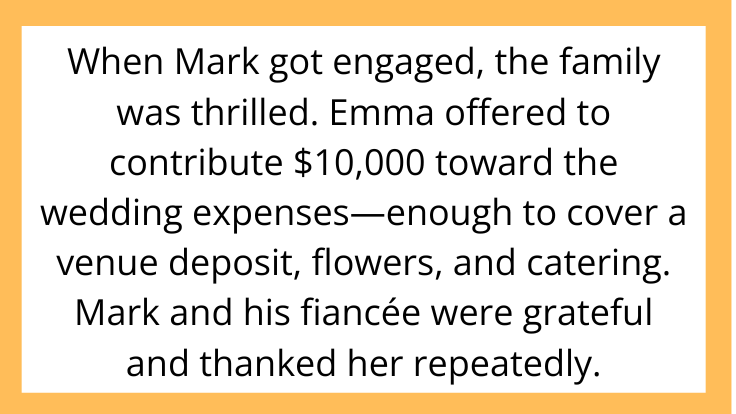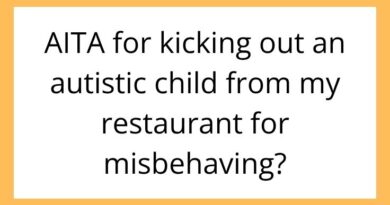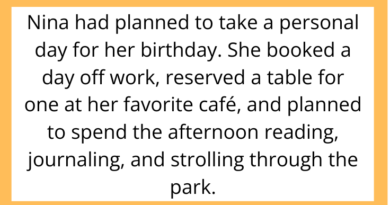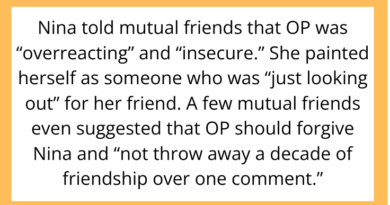AITAH for Refusing to Pay for My Brother’s Honeymoon Even Though I Could Easily Afford It?
When it comes to family, money has a way of creating tension even in the happiest of times. Today’s AITAH scenario explores a situation where financial generosity meets entitlement—and the internet is divided over who’s really in the wrong.
Let’s dive into the story.
The Background: A Generous Sibling with Clear Limits

A 33-year-old woman (let’s call her Emma) posted in r/AITAH explaining that she’s always been the “successful one” in her family. She built a thriving business in her late twenties, bought her own house outright, and has no debt. Her younger brother, Mark, 28, has struggled financially for years.
When Mark got engaged, the family was thrilled. Emma offered to contribute $10,000 toward the wedding expenses—enough to cover a venue deposit, flowers, and catering. Mark and his fiancée were grateful and thanked her repeatedly.
But when it came time to plan their honeymoon, the gratitude shifted to expectation.
The Request: A Fully Paid Honeymoon

A month before the wedding, Mark called Emma to share that he and his fiancée were dreaming of a two-week luxury trip to Greece. Flights, hotels, and excursions would total over $15,000.
He asked Emma if she’d be willing to pay for it, “since she had the money and it wouldn’t even make a dent.”
Emma was stunned. She told him she was already contributing significantly to their wedding, and while she was happy to give a gift, she wasn’t comfortable funding an extravagant vacation.
Mark was furious. He accused her of being selfish, saying she “wouldn’t even notice the money was gone.” Their mother sided with Mark, arguing that Emma was “hoarding wealth” instead of sharing it with her only sibling.
Feeling conflicted, Emma turned to Reddit: AITAH for refusing to pay for my brother’s honeymoon even though I could easily afford it?
The Internet Weighs In

The responses came in fast—and most were supportive of Emma.
Why Emma Is Not the Villain
-
Generosity Has Limits: Emma already gave $10,000—more than most siblings ever could.
-
No Obligation: Having money doesn’t mean you owe anyone luxury.
-
Entitlement is Not Gratitude: Mark’s expectation and anger crossed a line from hopeful to entitled.
One commenter put it perfectly:
“A gift is a gift. It’s not a subscription service.”
Another wrote:
“Just because you have resources doesn’t mean others get to spend them.”
A Minority Opinion
Some commenters empathized with Mark’s perspective, noting that Emma and Mark were raised in a tight-knit family culture where big siblings help the younger ones get started in life. A few felt that if Emma had always helped financially, Mark may have genuinely assumed she’d be willing to do so again.
Still, even these commenters agreed that demanding a honeymoon—especially such an expensive one—was unreasonable.
Boundaries and Money: Why It Gets So Messy

This story highlights a tension many families face: when one member becomes more financially successful, others may come to expect assistance. Over time, generosity can shift from kindness to an unspoken obligation.
Emma’s situation reveals the importance of boundaries:
-
Clear Communication: If you’re willing to help, be clear about how much, when, and why.
-
Saying No: You don’t need a justification beyond “I’m not comfortable with that.”
-
Emotional Detachment: Family can take “no” personally. That doesn’t mean you’re wrong to protect your limits.
What Could Emma Have Done Differently?
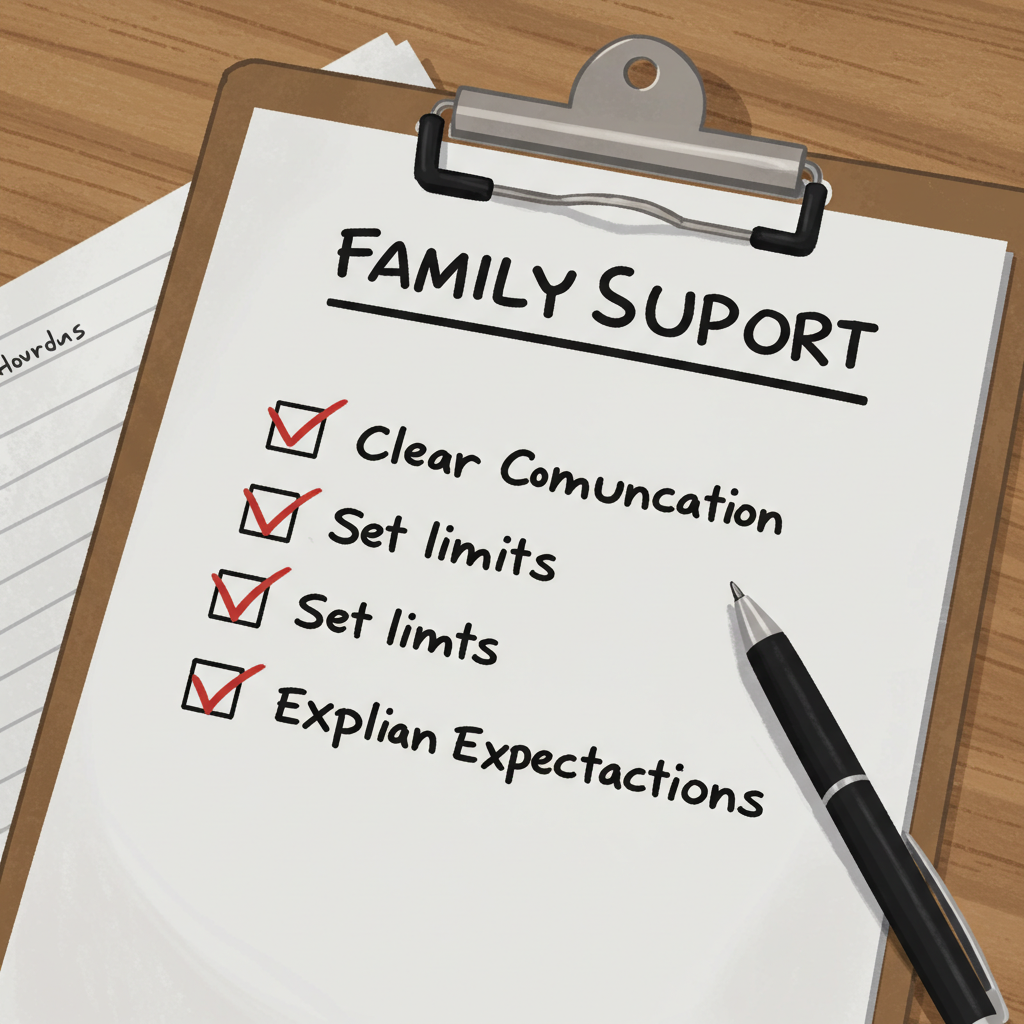
Some Redditors suggested that Emma could have preemptively set expectations when she offered the wedding contribution:
-
“I’m happy to help with wedding costs up to $10,000, but I won’t be able to fund other expenses.”
This clarity might have prevented disappointment. But ultimately, it’s Mark’s reaction—not Emma’s boundary—that caused the fallout.
The Bigger Question: Are We Responsible for Our Family’s Dreams?

Mark’s argument boils down to this: if you can make someone’s dream come true without sacrificing anything, why wouldn’t you?
It’s a compelling idea—but it’s also flawed. No one is obligated to spend their wealth simply because they have it. Emma worked hard to build financial security. Her willingness to share generously doesn’t mean she forfeits the right to say “enough.”
Takeaway: No, You’re Not the Villain for Saying No

Emma’s story is a powerful reminder that generosity is a gift—not a requirement. Saying “no” does not make you greedy or uncaring. It makes you someone who values healthy boundaries.
Sometimes, people who love you will still feel entitled to what you have. That doesn’t mean you owe them more. And it doesn’t mean you’re the villain for protecting your time, resources, or peace of mind.
